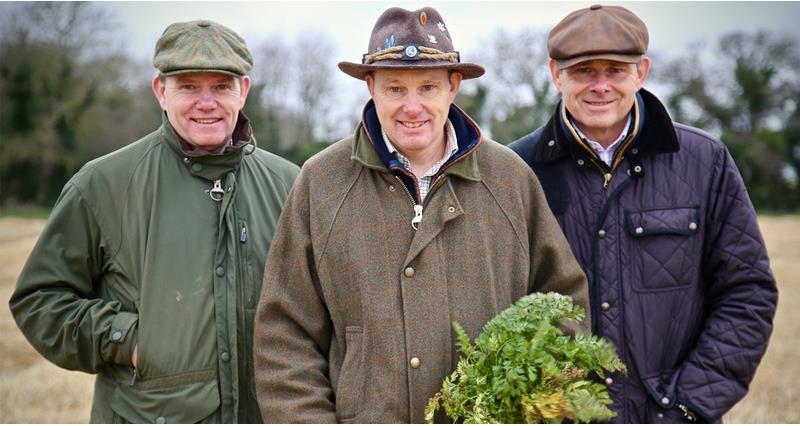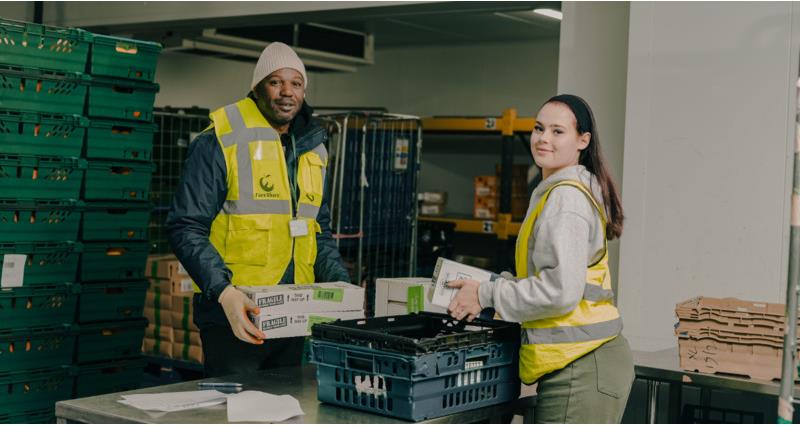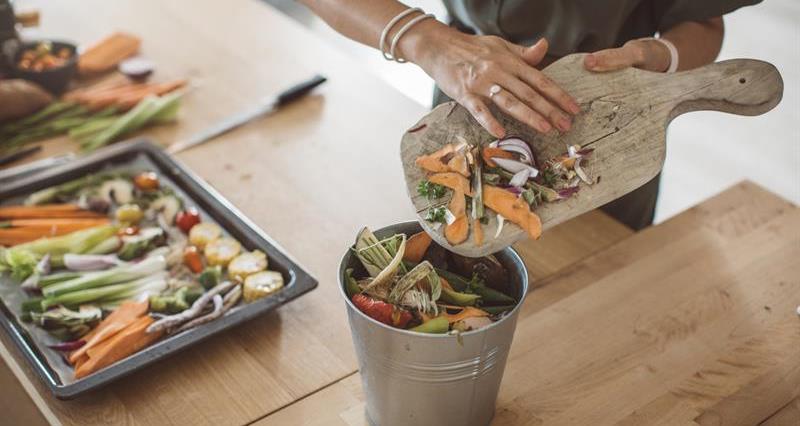Together with his family, Andrew owns , one of the UK's leading suppliers of conventional and organic potatoes and root vegetables, dating back to the 1800s when brothers Harry and Percy Burgess began growing vegetables in the Peterborough fens to sell in London.
Sustainability strategy
As part of its sustainability strategy, Burgess Farms seeks to protect and improve its environment, supply chain, people and community. In recent years, reduction of food waste has become a focus within its operation.
The first step to reducing food waste was to identify where food surplus could be reduced. Burgess Farms believe that food loss in the supply chain is avoidable; it's about finding the correct avenue for that product to go to.
Nothing from Burgess Farms goes to landfill, it either goes into retail as pre-pack, or if the product has defects, it will go to the processing sector to make products such as mashed potatoes.
If the product is not suitable for processing, such as having rot, that will go directly to animal feed. The waste hierarchy ensures as much of a product is utilised as possible by confirming it goes to the appropriate avenues. However, food surplus is still an issue.
Did you know...
Food waste and surplus accounts for around 6-7% of greenhouse gas emissions every year in the UK.
Redistributing surplus food can minimise environmental damage, achieve agronomic benefits and generate more profit for farm businesses.
Where is the surplus coming from?
Burgess Farms are monitoring food waste using methodology to investigate if they have waste anywhere along their production process, such as in-field waste.聽
Field surplus is not always considered waste because the produce is often small, not cost effective to harvest, and can benefit soil health when ploughed back into the field. However, Burgess Farms want to understand what has been left and how much, to understand if they are doing everything possible to reduce field waste.
Burgess Farms experiences food surplus at the pre-pack stage of their production.
Measuring food waste has helped environmentally to understand how changes in farm management might be needed to ensure the product is the best possible quality, ensuring land is used efficiently.
In the potato division, there are a many different varieties which are packed into specific packs for retail supermarkets. At times when orders of specific varieties have been met, there may be small amounts surplus to requirements.
Giving back to the community
Burgess Farms are a family-run business, focused on the communities and charities they can help. The ethics of the company are dedicated to creating behaviours which are about helping local communities.
Instead of wasting surplus product, Burgess Farms partnered with FareShare in 2015 to supply food surplus to the human food chain first, in accordance with the food waste hierarchy.聽
Burgess Farms has been delivering over 100 tonnes of produce a year to Fareshare, providing at least 2-3 pallets of potatoes every week.
This will either be given to the homeless or used to make meals. The surplus produce is free and prevents produce going further down the waste hierarchy.
Working with FareShare and WRAP has meant that nutritious, surplus food is being received by those who need it, while helping the UK meet the UN鈥檚 Sustainable Development Goals.
FareShare
FareShare is one of the UK鈥檚 national networks of charitable food redistributors, made up of 18 independent organisations that work to redistribute nutritious food to vulnerable people.
FareShare reaches charities across the UK, including school breakfast clubs, older people鈥檚 lunch clubs, homeless shelters, and community cafes.


